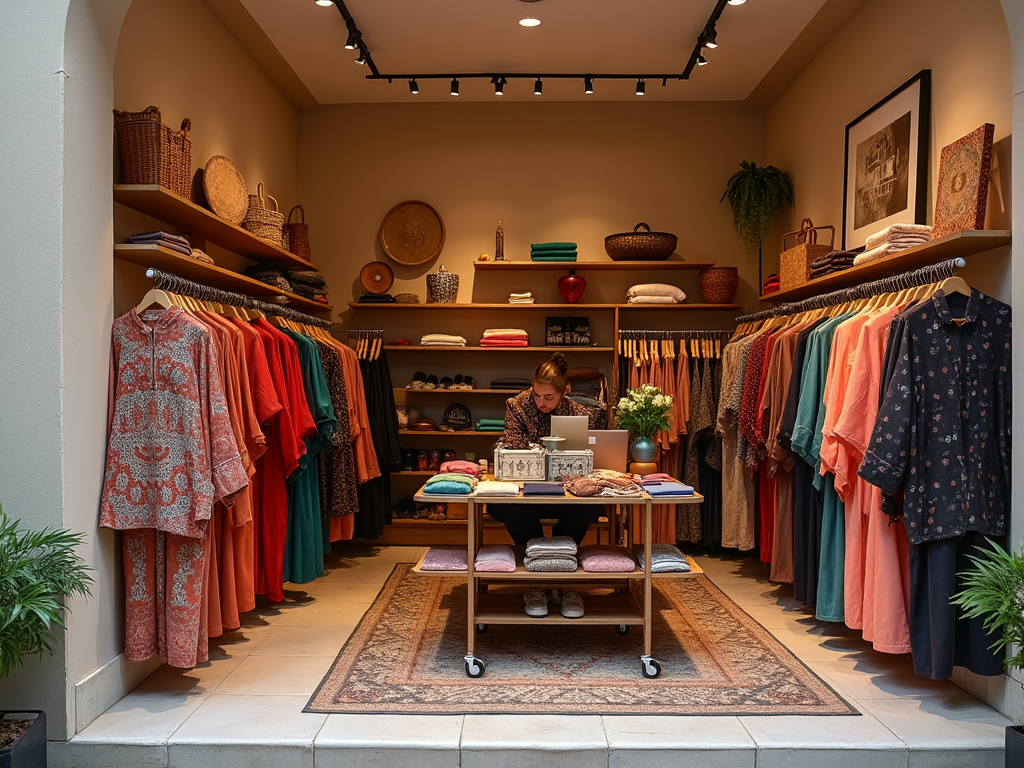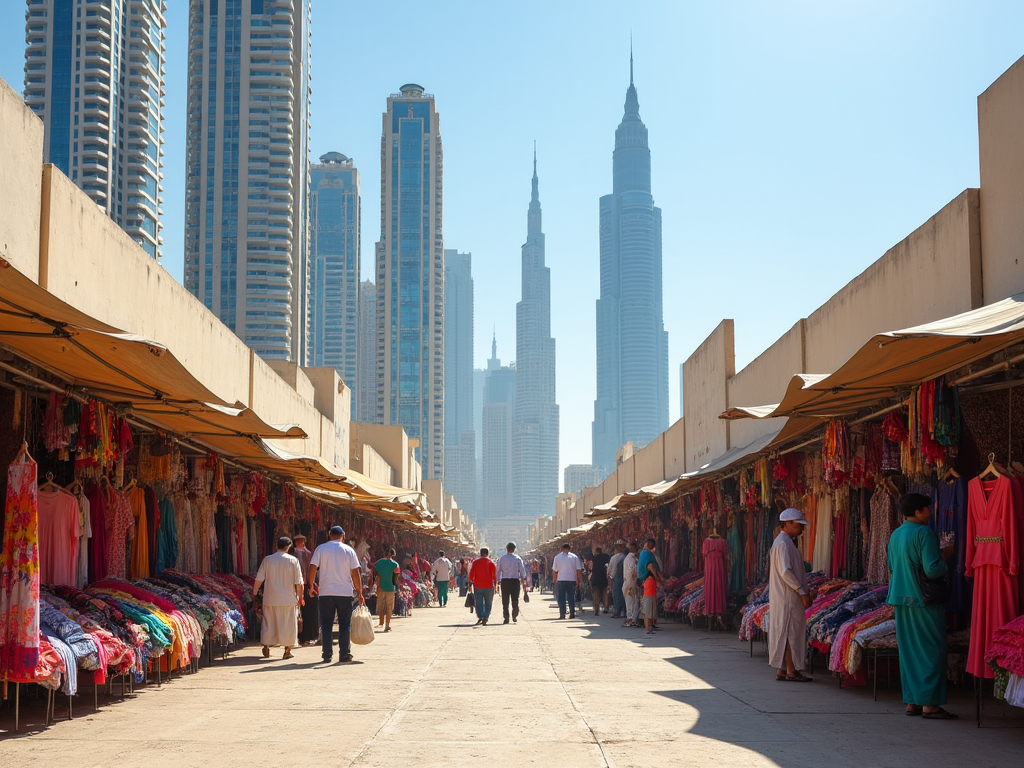Starting a readymade garments business in Dubai is an exciting opportunity, thanks to its booming retail market and strategic location. This article will guide you through the essential steps to establishing a successful garments business, from market research to licensing and operations.
Understanding the Market

Before you dive into a garments business, it’s crucial to understand the local and regional market. Dubai has a diverse population, which means it has a varied demand for clothing styles from different cultures. Conduct thorough market research to identify your target demographic, their preferences, and purchasing power. Look into the latest trends in fashion, fabric quality, and pricing. Analyze your competitors—who they are, what they offer, and how you can differentiate your business.
In addition to demographic insights, consider the economic environment. Dubai is known for its luxury markets, but there’s also a demand for budget-friendly clothing. This presents an opportunity to cater to a wider audience. Completing a SWOT analysis (Strengths, Weaknesses, Opportunities, Threats) can be beneficial in understanding where your business can fit into the marketplace.
Choosing a Business Model

Once you have a grasp of the market, the next step is to choose a suitable business model. There are several models for your garments business, including:
- Retail Storefront – Selling directly to consumers from a physical location.
- Online Store – E-commerce platform to reach a broader audience.
- Wholesale – Supplying garments to other retailers.
- Franchise – Partnering with established brands for wider recognition.
Each model comes with its set of challenges and advantages. For example, a retail storefront allows for customer interactions but requires high initial investment. Alternatively, an online store might have lower overhead but will need strong digital marketing efforts. Choose a model that aligns with your strengths, resources, and business goals.
Legal Requirements and Licensing
Establishing a readymade garments business in Dubai requires compliance with local regulations. The registration process can be complex, but it’s manageable once you understand the steps involved. Start by choosing a trade name that reflects your brand. The name must comply with certain regulatory standards, avoiding offensive language or existing trademarks. Next, you’ll need to apply for a business license based on your chosen model.
The types of licenses you might need include a retail license for storefronts and a trade license for e-commerce. Depending on your product line, you may also require specific permits, especially if you deal with imported goods. Once you have the necessary licenses, you should consider registering your business with the Dubai Chamber of Commerce and Industry to gain credibility and access various business resources.
Your next step involves sourcing quality materials and manufacturing your garments. Research potential suppliers for fabrics and other raw materials, focusing on quality, cost, and reliability. You can source materials locally or import them depending on your business model. Establishing relationships with your suppliers is vital; negotiating prices and delivery terms can significantly impact your profitability.
If you plan to manufacture your garments, look for local manufacturers or consider setting up a workshop in Dubai. Pay attention to labor laws and ensure you follow ethical practices in sourcing and production. You might also choose a third-party manufacturer or dropshipping model to minimize overhead costs. Whatever method you choose, quality control should remain paramount to ensure customer satisfaction.
Marketing and Branding
Once your garments are ready for the market, the next task is to build a strong brand and marketing strategy. Your brand identity should resonate with your target audience, encapsulating your mission, vision, and values. Begin with a unique logo, engaging packaging, and a cohesive visual identity across all platforms.
Implement robust digital marketing strategies, including social media advertising, SEO, and influencer partnerships, to reach a wider audience. Engaging content and compelling storytelling can help to connect with potential customers. Hosting local events or pop-up shops can also enhance brand visibility and provide direct customer interaction.
Conclusion
Setting up a readymade garments business in Dubai entails careful planning, a solid understanding of the market, and compliance with legal requirements. By choosing the right business model, sourcing quality materials, and implementing effective marketing strategies, you can create a successful garments business. Stay adaptable and responsive to trends, and you’ll position yourself for long-term success in the vibrant Dubai market.
Frequently Asked Questions
1. What is the initial cost of starting a garments business in Dubai?
The initial costs can vary greatly depending on your business model, location, and scale. Generally, you should budget for business registration, licensing fees, inventory, and marketing expenses. It’s advisable to have enough capital to cover at least 6 months of operations.
2. Do I need a local sponsor to start a business in Dubai?
If you are starting a business in the mainland area, having a local sponsor is typically required for foreign entrepreneurs. They will hold a minority share (usually 51%) in your business. For free zone businesses, you can fully own your company without a local sponsor.
3. How can I find reliable suppliers for my garments business?
Networking and attending trade shows can connect you with potential suppliers. Additionally, online platforms such as Alibaba or local trade directories can be useful in finding fabric manufacturers and suppliers in Dubai and abroad.
4. What are the best marketing strategies for a new garments business?
Utilizing social media for targeted ads, influencer marketing, product collaborations, and offering promotions can help raise awareness. Furthermore, creating a user-friendly website and SEO content can draw organic traffic and improve visibility.
5. What should I consider for my brand’s unique selling proposition (USP)?
Your USP should set you apart from competitors. Consider unique designs, sustainable practices, quality materials, or excellent customer service as potential differentiators. Heavily researching your competitors will help identify gaps you can fill.



